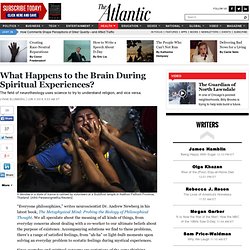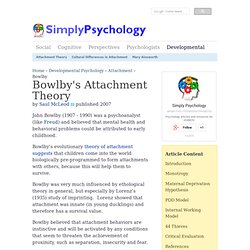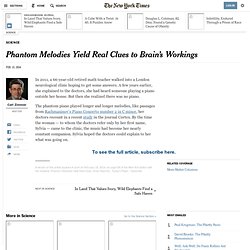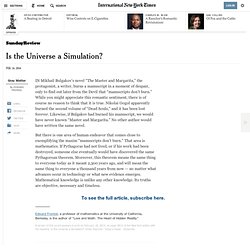

Last Week Tonight with John Oliver (HBO): Stephen Hawking Extended Interview. Brain's balancing act discovered: Wiring determines if neurons communicate. Researchers at the University of California, San Diego School of Medicine have discovered a fundamental mechanism by which the brain maintains its internal balance.

The mechanism, described in the June 22 advanced online publication of the journal Nature, involves the brain's most basic inner wiring and the processes that control whether a neuron relays information to other neurons or suppresses the transmission of information. Specifically, the scientists have shown that there is a constant ratio between the total amount of pro-firing stimulation that a neuron receives from the hundreds or thousands of excitatory neurons that feed into it, and the total amount of red-light stop signaling that it receives from the equally numerous inhibitory neurons. This constant ratio, called the E/I ratio, was known to exist for individual neurons at a given time. What Happens to the Brain During Spiritual Experiences? - Lynne Blumberg.
The field of neurotheology uses science to try to understand religion, and vice versa.

A devotee in a state of trance is calmed by volunteers at a Buddhist temple in Nakhon Pathom Province, Thailand. (Athit Perawongmetha/Reuters) “Everyone philosophizes,” writes neuroscientist Dr. What Happens to the Brain During Spiritual Experiences? - Lynne Blumberg. Maternal Deprivation Theory. By Saul McLeod published 2007 John Bowlby (1907 - 1990) was a psychoanalyst (like Freud) and believed that mental health and behavioral problems could be attributed to early childhood.

Bowlby’s evolutionary theory of attachment suggests that children come into the world biologically pre-programmed to form attachments with others, because this will help them to survive. Bowlby was very much influenced by ethological theory in general, but especially by Lorenz’s (1935) study of imprinting. Lorenz showed that attachment was innate (in young ducklings) and therefore has a survival value.
Should we be mindful of mindfulness? At just after 6.15pm in a brightly lit conference room in Oxford, 22 grown men and women are lying on the floor trying hard to focus on their left knee.

From across the room a lilting, calm voice has already invited the group to explore their feet and ankles with "gentle curiosity" and is heading up through the body. "When your mind wanders, gently and kindly escort your attention back to your left knee," she tells us. It's not easy. Lying on a blue plastic mat, dressed in an uncomfortable work suit and open necked shirt, with an air conditioning unit grumbling close by, my mind isn't that keen on being escorted anywhere. Instead, it's wondering if anyone else is struggling to focus. The War on Reason - Paul Bloom. Aristotle’s definition of man as a rational animal has recently taken quite a beating.

Part of the attack comes from neuroscience. Pretty, multicolored fMRI maps make clear that our mental lives can be observed in the activity of our neurons, and we’ve made considerable progress in reading someone’s thoughts by looking at those maps. It’s clear, too, that damage to the brain can impair the most-intimate aspects of ourselves, such as the capacity to make moral judgments or to inhibit bad actions. To some scholars, the neural basis of mental life suggests that rational deliberation and free choice are illusions. Because our thoughts and actions are the products of our brains, and because what our brains do is determined by the physical state of the world and the laws of physics—perhaps with a dash of quantum randomness in the mix—there seems to be no room for choice.
Prescription-painkillers-seen-as-a-gateway-to-heroin. Photo The life of a heroin addict is not the same as it was 20 years ago, and the biggest reason is what some doctors call “heroin lite”: prescription opiates.

These medications are more available than ever, and reliably whet an appetite that, once formed, never entirely fades. Details are still emerging about the last days of , the actor who died last week at 46 of an apparent heroin overdose. Yet Mr. Phantom Melodies Yield Real Clues to Brain’s Workings. Photo In 2011, a 66-year-old retired math teacher walked into a London neurological clinic hoping to get some answers.

A few years earlier, she explained to the doctors, she had heard someone playing a piano outside her house. But then she realized there was no piano. The phantom piano played longer and longer melodies, like passages from Rachmaninov’s Piano Concerto number 2 in C minor, her doctors recount in a recent study in the journal Cortex.
By the time the woman — to whom the doctors refer only by her first name, Sylvia — came to the clinic, the music had become her nearly constant companion. Continue reading the main story Sylvia was experiencing a mysterious condition known as musical hallucinations. Is the Universe a Simulation? Photo Gray Matter By EDWARD FRENKEL IN Mikhail Bulgakov’s novel “The Master and Margarita,” the protagonist, a writer, burns a manuscript in a moment of despair, only to find out later from the Devil that “manuscripts don’t burn.”

While you might appreciate this romantic sentiment, there is of course no reason to think that it is true.